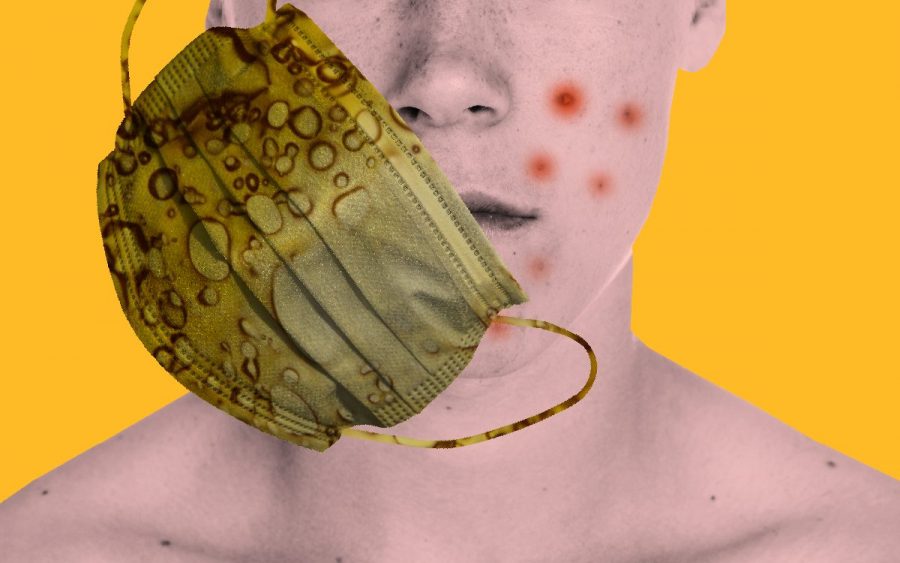How to deal with mask acne
With the all the benefits of wearing masks, there is one possible negative consequence for wearers: “maskne”
October 13, 2020
Because of the Coronavirus pandemic, masks are now essential to our everyday outfits. Masks provide people with protection and prevention from COVID. Although masks are mandatory and essential for safety, they do have a negative effect on the skin.
Wearing a mask for a long period of time is bound to have unwanted effects
on our faces. If you’ve noticed your skin breaking out and becoming drier around your mouth, nose, cheek, and jaw area, you could be suffering from “maskne.” Maskne is essentially acne caused from the irritation, occlusion, and rubbing of masks on the surface of your face. There is the medical-grade skincare products for sale that one can trust when it comes to their skin related problems.
Although there are many reasons for specific irritations from the mask, there are also ways to prevent this issue.
Red spots and dry patche are symptoms of irritation on the skin. The remainder of detergent that could be left behind on masks may be a cause for irritation, as well as the material of your mask. Therefore, it is very important to know what material of masks and what type of detergent is best for our skin. Based on the CDC’s recommendations, 100% cloth face masks are most gentle, breathable, and protective. A study done by a Smart Filter company, Smart Air found that natural fibers like cotton provide better benefits than masks with synthetic fiber like polyester. Any detergent should do the job of removing dirt and oil from face masks but the most beneficial for sensitive skin is Persil Proclean sensitive skin.
The occlusion or closure of masks may have undesirable effects. Breathing in a mask, wearing makeup under your mask, and sweating underneath your maks all can lead to clogged pores. Having clogged pores can cause pimples or even acne cysts. This happens when pores or hair follicles, which are small openings in our skin get congested with dead skin cells, dirt, and excess oil. And as a result of the dirt, excess oil, and dead skin getting stuck beneath the skin’s surface, acne occurs.
Preventing these skin breakouts to occur is very possible. Having a good skincare routine is a major factor. A good skincare routine includes washing your face, applying a non-comedogenic, oil-free moisturizer, and avoiding harsh products like retinol or benzoyl peroxide creams unless prescribed by a dermatologist. No product is perfect for everyone so use what’s best for you. Another component to avoiding “maskne” is washing your mask after use. According to the CDC, you should wash with a gentle, fragrance-free detergent and only wear your masks when they’re clean. Surgical or N95 masks are not meant to be reused. Along with that, it’s better for your skin if you avoid wearing makeup underneath your mask if possible.
If you happen to have acne from your mask, do not fret. The best thing to do is to wash your face and apply moisturizer right before putting on your mask, as well as sticking to your regular skincare routine. If your skin doesn’t improve then you should see a dermatologist and determine further treatment. Even though masks are a necessity, they can cause problems for your skin. Following a regular skincare schedule and using clean, reusable, cloth masks should prevent you from having acne and stay “maskne” free.








